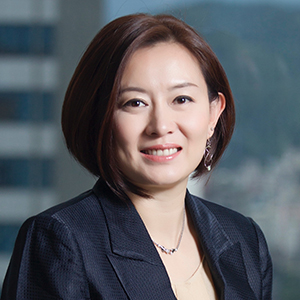15th Annual UCI Wan-Lin Kiang Lecture: The High Income Trap in East Asia
-----
 Reception: 4:30-5:15 p.m.
Reception: 4:30-5:15 p.m.
Lecture, Q&A: 5:15-6:15 p.m.
About the speaker:
Syaru Shirley Lin teaches political economy at the University of Virginia and the Chinese University
of Hong Kong. Her book on the impact of the evolution of Taiwanese national identity
on cross-Strait economic policy was published by Stanford University Press in 2016.
She is currently working on the high income trap in East Asia. Her commentary frequently
appears in English and Chinese media. Lin retired from Goldman Sachs as a partner
in the Principal Investment Area, spearheading investments in technology start-ups
in twelve countries in Asia. Previously, she specialized in the privatization of state-owned
enterprises in China and Singapore. Lin has served on the boards of numerous companies,
now including Goldman Sachs Asia Bank, Langham Hospitality Investments and Mercuries
Life Insurance. She was appointed by the Hong Kong government to the Committee for
Pacific Economic Cooperation and advises the Focused Ultrasound Foundation and Crestview
Partners. Lin graduated cum laude from Harvard College and earned a Ph.D. from the University of Hong Kong.
About the talk:
After decades of impressive growth, economies such as South Korea, Taiwan, Singapore,
Hong Kong and Japan reached high income status nearly three decades ago. While they
were able to avoid the middle-income trap by relying on more highly-valued exports,
they have begun to exhibit symptoms of a high-income trap characterized by slower
growth, wage stagnation, increasing inequality, an aging population, unsustainable
entitlements, inflated housing costs and over-regulated markets. Their manufacturing
industries can no longer compete with newly emerging economies with lower labor costs,
especially China. Yet they find it difficult to promote innovation in manufacturing
or upgrade to higher value-added services to remain competitive and provide benefits
to a wider spectrum of society. As a result, social tension is on the rise, fueled
by the perception that newly emerging economies and free trade are to be blamed for
job loss, slower growth and social problems. These economic problems have strengthened
national identities and promoted support for protectionism, which threatens to slow
down globalization and growth. All this parallels developments in Europe and the United
States where economic integration appears to threaten the identities of specific groups
of people, especially those who see themselves as the victims of globalization. Are
the challenges facing high-income countries in Asia different than those in other
parts of the world? Is there a generational gap in terms of attitudes toward trade
and globalization? What are the possible solutions to the trap?
About the Kiang Lecture Series
The Wan-Lin Kiang Endowed Lecture Series was established in 2003 by Mrs. Assumpta
Kiang in memory of her husband, Wan-Lin Kiang, a noted international scholar, political
advisor and businessman. The series annually brings to campus a noted scholar on relevant
topics related to China.
About the Center for Asian Studies
The center is comprised of more than 40 interdisciplinary UCI faculty members who
study China, Japan, Korea, South Asia, and Southeast Asia and enhance the study of
the many countries and cultures of Asia. The center provides a forum for discussions
across geographic and disciplinary boundaries both on campus and within the community.
-----


